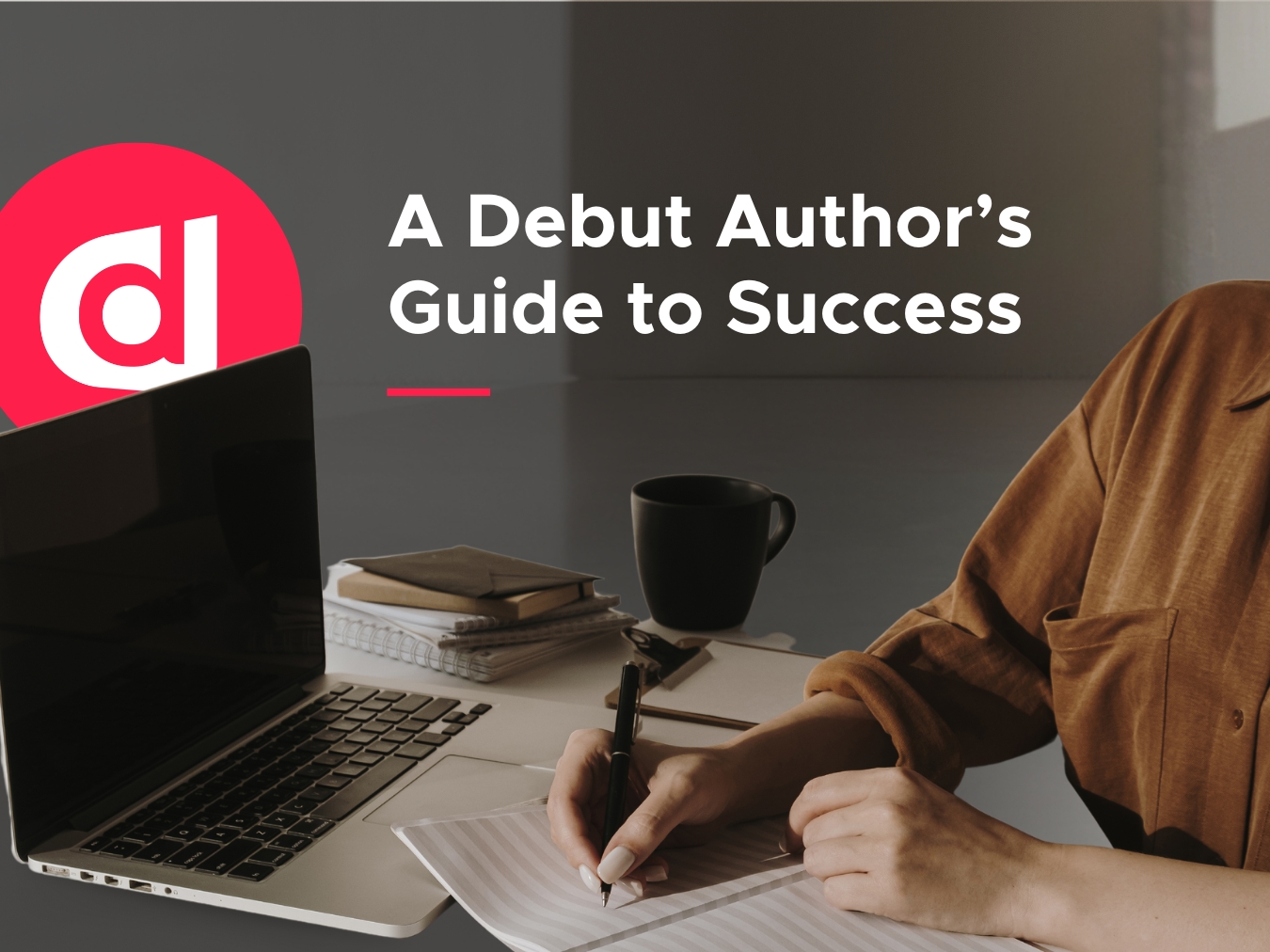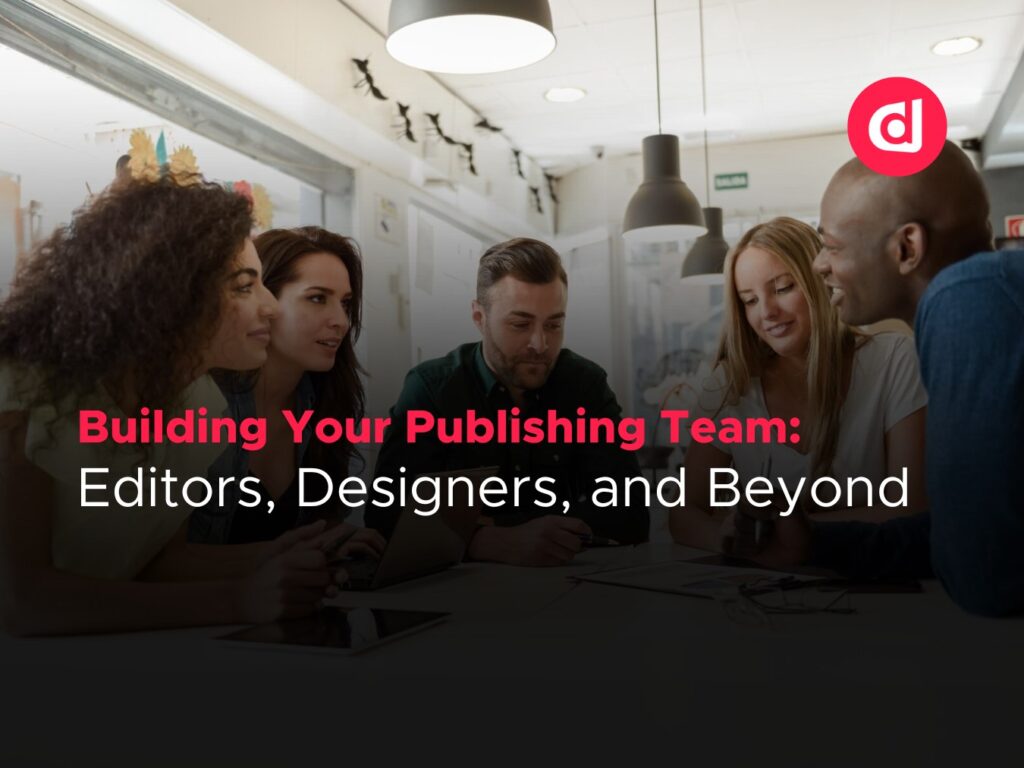A career as an author is within reach, but how do you make it a reality? We cover everything you need to know in this handy authorial debut handbook.
The First Chapter: A Debut Author’s Handbook to Crafting a Successful Writing Career
Building a writing career is full of bumps and learning curves. From the outside, looking in, it might appear as simple as “write a book, get published.” However, the industry has moved far away from this in the last few years.
Although there are no set-in-stone strategies for debut writers to get published, there are some things you can do to make the process easier. These include taking your career into your own hands or having someone else be your liaison.
Kickstart Your Writing Career

Writers are something special. They hold entire worlds, people, and concepts in their heads, and then they pour them out onto the page. At least, that’s the case with fiction writers.
Non-fiction writers hold a lot of information in their heads, and through careful research and analysis, they pour it onto the page.
If you want a writing career kickstart, you have to write something. However, if you have an idea but don’t know how to write, you can always hire a freelance ghostwriter to help you make your dream a reality.
Ghostwriters are career writers who want to use their skills to help you achieve your dreams of becoming an author. This is just one of many helpful strategies for debut writers that can help launch your career.
When you have something ghostwritten, the intellectual property is yours. You can do with it whatever you wish. Have it edited, have it rewritten, or rewrite parts of it yourself. It is completely up to you, but it is a starting point.
If you choose not to hire a ghostwriter, then you need to sit down and start writing. Give yourself permission to be bad and to just get to the end.
So, how do you start writing?
You can search for prompts online, along with writing exercises and recordings of lectures. Do the exercises, ask for feedback, and, most importantly, integrate that feedback. Learn when something isn’t working, find ways to make it work, or explore other options.
The Industry
Navigating the publishing industry is tricky, at best. If you have a literary agent, they will cover this for you. It’s their job to be your voice and to fight in your corner. If you want to self-publish, you have to fight in your own corner and advocate for yourself.
An awareness of popular trends is an advantage. If you know what is selling, then you can write something that will sell. This can be a work of genre fiction or a work of literary fiction. The marketplace is crowded; how can you stand out?
Another thing to keep in mind is your presence as an author. Literary agents keep an eye on longlists and shortlists for many national and international writing competitions. If you are lucky enough to land a spot on one, you improve your chances of signing with an agent.
To add to that, your social media presence can be a defining factor. Agents and publishers will look at your social media presence to get a feel for who you are. If your debut book is about feminism, they want to see that you are practicing what you preach.
Given the nature of social media, publishers want to publish authors who can a) make them money and b) not land them in trouble. A recent controversy involving a debut author and her use of multiple Goodreads accounts resulted in her book being pulled from publication.
The traditional publishing industry is designed to make money. Publishers want to take on books that will sell. To a traditional publisher, you are an investment. The same is true of literary agents.
Investing in your own writing will also go a long way toward demonstrating your dedication to your craft and career. Taking a writing course and gaining some experience in the field will make your query letter stand out to an agent.
Launching Your Career

Embarking on a career as a writer is scary, especially if you are a debut author. Having a book published essentially means you are exposing a part of your soul to the world.
One of the reasons people get into writing and publishing is because they want to make either extra money or a living from their royalties. While this is possible, it’s not always a guarantee, depending on the type of publishing you choose to pursue.
If you want to make money as a writer, you need to know two things:
- You are going to be disappointed.
- It’s going to take time.
In the age of self-publishing, it’s easy to think that uploading a file to Amazon is all you need to do. While that certainly is a part of it, brace yourself for disappointment. Unless you have some solid SEO to market your book, you are unlikely to get any sales.
A successful debut book launch is key to getting your career as a writer off on the right foot. By making a solid impression on readers, you are setting yourself up for success. Here are some strategies you can implement to see this through:
- ARC and Beta Readers: Advanced Review Copy (ARC) readers get your book a month or so ahead of publication in exchange for leaving a review. Beta readers are an effective tool you can use to judge how your book is coming across. You can ask them to spot any mistakes, plot holes, or missed opportunities. ARC readers just review the book.
- Virtual Incentives: The age of self-publishing has revolutionized digital publishing. This means that there are more opportunities to connect with and reward readers. You can commission a special edition audiobook, for example, or bonus content on an eBook.
- Book Tours: Whether physical or virtual, a book tour is a means of engaging with potential readers. It gives you an opportunity to talk about your book, your inspiration for it, and where you hope to take it.
Establishing an authorial presence is one of many keys to a successful writing career. Publishing think pieces in online magazines or even starting a BookTok or BookTube account can go a long way toward boosting your career.
By making yourself visible in this way, not only do readers have a chance to get to know you, but so do publishers.
One last piece of advice before we move on: Read as much as you can, ideally whatever is being published right now in your genre. You can scroll through social media as much as you want, but reading what’s currently being written will give you the best indication of market trends.
Frequently Asked Questions
What Are My Options With Publishing?
The two most popular routes you can go down are traditional and independent publishing.
In traditional publishing, you publish with a publishing house. The design and marketing teams take over, your book is given to an editor, and you, the author, can start your career with your debut.
The second option is independent publishing. This includes self-publishing. If you choose to pursue this route, you are taking your career into your own hands, meaning you have full control over everything.
Do I Need a Literary Agent?
Do you intend to publish traditionally? Then, yes, you need a literary agent.
Do you intend to self-publish or publish independently? Then, no, you do not need a literary agent.
A literary agent’s job is to liaise between the publishing market and the author. Once a publisher has been secured, the publisher will pay you an advance, which will be doled out in three or four installments over the publication process.
If you want to sign with a literary agent, you need to be aware of a few things:
- Genre: Not all literary agents are equal. Some are more interested in cozy mysteries; some want smutty romance; others want non-fiction books about greenhouse gas emissions.
- Time: Although literary agents say they can take up to 12 weeks to respond to a query, it can actually take up to a year, if not longer. Agents are busy people; they are almost always in meetings. So, submit your query pack, then forget you submitted it.
- Ego: Learn when to leave your ego at the door. Recently, authors have been behaving badly, launching into tirades or review-bombing other creatives. Do not let this happen to you.
How Can I Stay Ahead of the Market?
Publishers, both traditional and independent, will always look at market trends to decide what’s popular.
The market will always favor whatever is popular. Penguin Random House is currently leveraging AI tools to better understand market trends. On social media, romantasy is taking off, with influencers promoting books within different genres.
If you want to stay ahead of the market, you need to read what is being published now. As a writer, your job is to reflect the world around you in the form of fiction. Pay attention to what is happening where you are, and formulate a response to it.
What Should I Write About?
That depends on your interests and the genre you would like to write in. Think about the books you like to read, why you like to read them, and what you personally take from them.
If you are writing fiction, you are using fiction to explore the truth and reflect on something about the world we live in. For example, Yellowface by RF Kuang explores cultural appropriation in the publishing industry while reflecting inherent biases.
If you are writing non-fiction, you are taking something that is already known and bringing it to a broader population. A recent example, Ultra Processed People explores how ultra-processed food is affecting global populations and the planet.
Anything Else I Should Know?
The career of an author is not always glitz and glamor. While it’s possible to make a living telling stories to other people, it can take a long time before it becomes a sustainable source of income.
If you get into writing because someone on social media told you that they make a lot of money every month, you will be disappointed. If you publish traditionally, you will need to pay off your advance before you can start earning royalties.
In contrast, if you publish independently, you can start earning royalties immediately. The downside to this is that you will be on the hook for all the costs: marketing and promotional materials, cover art, and virtual book tours.
Writing is a craft. For many, it’s a hobby. For others, it’s a means of expression, not just income. Which of these applies to you?
Final Words

Crafting a career as a debut author can feel scary at first, especially when you don’t know how to navigate the publishing industry. By maintaining a presence on social media and displaying who you are as a person and writer, readers and publishers will get to know you.
Traditional publishing is not the only way to go. Utilizing tools such as book tours, SEO content, and social media, you can take control of your career as an author by self-publishing.
The strategies and tips in this blog are just the tip of the iceberg, and we hope you’re feeling more confident in your career as an author.















